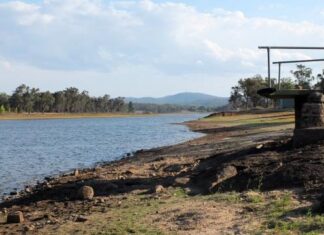
To celebrate this big event, Yelarbon State School and community is holding a day of fun and festivities on Saturday, September 8, from 11am.
Everyone is invited to come along and catch up with old friends and new. There will be plenty to see and do, with food and craft stalls and entertainment for all. To register, call (07) 4675 1109 or visit www.yelarbonss.eq.edu.au
Yelarbon State School opened its doors to students in July 1912, replacing the itinerant teacher who had visited families by horse-drawn sulky every couple of months or more.
The District Inspector, investigating the need for a school in the district, reported, “When the application for a school was made, there were only 12 children of school age in this lately formed township. There are now 19, and one who will be five years old on August 1 next. Everything points to the progression of Yelarbon. A severe drought only would affect it, and that, in my opinion, only temporarily.”
‘Rabbits, Railways and Resilience’, a book written by Yelarbon local Janelle Wilkie to commemorate the centenary, covers the rich history and personal stories of the Yelarbon State School, town and district. It is available for purchase through the school website.
In 1912, King George V reigned and Queenslander Andrew Fisher was Prime Minister.
The State Premier, Digby Denham, had the unenviable task of dealing with the 1912 Brisbane General Strike, that later became known as Black Friday, due to the severity of force used against protestors by police in Market Square, now King George Square. The 15,000-strong crowd was supporting members of the Australian Tramway Employees Association who were sacked when they wore union badges to work.
Are there any new ideas? The Maternity Allowance Act of 1912 was passed, giving a ‘Baby Bonus’ of five pounds to most mothers “for the birth of a live or ‘viable’ child”. An extra allowance was not paid for more than one baby, so if you gave birth to twins or triplets, you still only got five quid.
In 1912, Australia sent women to the Summer Olympics in Stockholm for the first time. Sarah ‘Fanny’ Durack won the 100 metres freestyle, beating fellow Australian, Wilhelmina ‘Mina’ Wylie.
Yelarbon State School celebrates 100 years
Digital Edition
Subscribe
Get an all ACCESS PASS to the News and your Digital Edition with an online subscription
Water security tops council’s pre-budget wish list
Water security, infrastructure upgrades and safer roads topped the Southern Downs council’s state and federal pre-budget wishlists with millions in funding sought to future...








